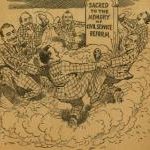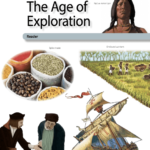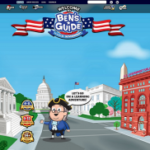Using this resource, students will view short C-SPAN video clips exploring the background and different arguments surrounding the question over the current voting age. This deliberation has students learn about the history of lowering the voting age and explore the question: Should the voting age be lowered to 16?
Civil Service Reform: Creating a Merit System for Pennsylvania

The Gilded Age of the late 19th century is not typically recalled as an age of reform. Characterized by industrialization, urbanization, and rapid population growth, it was an era of remarkable economic expansion. The Gilded Age also saw a dramatic expansion in the size and scope of government—the federal government employed just 53,000 people in 1871, but numbered 256,00 employees by 1900. Patronage politics was the norm, at every level of government.
Fourth Amendment: Search and Seizure
Most Americans are unaware about when and where Fourth Amendment rights are at issue. This lesson will allow students to examine the text and interpretations of the Fourth Amendment to describe key terms and ideas like searches, seizures, and privacy, as well as define some of the key debates about where the Fourth Amendment is headed in an age of technology.
How to Have a Civil Civic Conversation
Filmed on a Constituting America Winner Mentor Trip, five young ladies share their thoughts on how to agree to disagree and how to have a discussion and still remain friends. Through personal experience these students have learned a lifelong lesson. Enjoy learning their lessons while you discuss yours. When watching you will see each person’s name, title and number. The number is their age. The title is the contest area they won in the We the Future contest. Check out the website for the contest information. Who knows maybe soon you will see your talent on the Civics Renewal Network and Constituting America!
George Washington’s Rules of Civility in the Age of COVID-19
In 1745, a young George Washington copied down a set of rules in his workbook. His aim was to learn how to properly conduct himself in society. He took his examples from the writings of a 16th-century Jesuit priest. The rules Washington recorded still resonate today as we learn how to navigate the health crisis the world is now facing while trying to maintain civil behavior.
The Age of Exploration (CKHG Unit)

This unit introduces students to European exploration and trade from 1400 to the 1600s. Across 12 lessons, students learn about motivations for European exploration and study specific explorers, learning about their encounters with indigenous peoples. Students are introduced to the early slave trade and the beginnings of slavery in the Americas.
Constitutional Index – Amendment 26 Suffrage-Age Clause
The Constitutional Index breaks down the U.S. Constitution by Section, Amendment, and Clause and contains broader topics and themes. These are used to cross-reference Library resources in an effort to annotate constitutional history.
Voting Rights in America Timeline
Supplement your students’ understanding of voting rights in the United States with this free downloadable timeline. This visual guide breaks down the history of voting rights across identities, and gives context to efforts to expand and limit voting access over time, through the lenses of our three branches of government and our federal system.
Women & the American Story: Confidence and Crises, 1920-1948
This free curriculum unit from the New-York Historical Society considers what it meant to be American in the decades following World War I. Materials focus on the tensions caused by the social, economic, and political shifts of the era and how women took action on a broad array of issues.
Ben’s Guide to the U.S. Government

Go on a learning adventure with Benjamin Franklin. Ben’s Guide is designed to inform students, parents, and educators about the workings of the Federal Government. Site content is divided into age levels. Lesson plans developed by the American Association of School Librarians are available, and games are also offered.